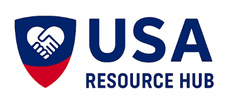Whether you are unemployed, underemployed, or looking to switch careers, free job training programs can be a game-changer. These programs are designed to help individuals gain marketable skills, earn certifications, and connect with employers, without the financial burden of tuition or fees. From government-funded initiatives to nonprofit-led workshops, there are more options than most people realize.
If you are ready to boost your career prospects but unsure where to start, this guide will walk you through the types of programs available, how to find them in your area, and what to expect during the application process.
What Free Job Training Programs Offer
Free job training programs vary widely in scope, but most include:
- Hands-on skills training in fields like healthcare, construction, IT, hospitality, and manufacturing
- Industry-recognized certifications that improve employability
- Resume support and interview coaching to help you present yourself professionally
- Job placement assistance or direct connections to employers
- Flexible formats, including online, in-person, and hybrid options
Some programs also offer stipends, transportation assistance, or childcare support to reduce barriers to participation.
Where to Find Free Job Training Programs
Here are some of the most reliable places to start your search:
1. Local Government Agencies
Many cities and counties offer workforce development programs through their employment offices or economic development departments. These programs are often funded by national initiatives and tailored to local job markets.
Look for services offered by:
- Public Employment Service Offices (PESO)
- Department of Labor and Employment (DOLE)
- Technical Education and Skills Development Authority (TESDA)
TESDA, for example, offers free online and onsite training in fields like ICT, healthcare, agriculture, and tourism. Participants can earn National Certificates (NC) that are recognized by employers across the Philippines.
2. Nonprofit Organizations
Nonprofits often partner with local businesses and government agencies to provide free training. These programs may focus on underserved communities, youth, or displaced workers.
Examples include:
- Community Action Agencies
- Faith-based organizations
- Women’s empowerment groups
- Youth development centers
These programs typically include soft skills training, resume support, and job placement services.
3. Online Platforms and Government Initiatives
Digital learning platforms now offer free certification courses in high-demand fields. Some are backed by government programs like digitaljobsPH, which trains aspiring freelancers in online work such as virtual assistance, content writing, and e-commerce support.
Other platforms like Coursera, edX, and Google Career Certificates offer free or subsidized training in areas like data analytics, project management, and IT support.
4. Community Colleges and Vocational Schools
Some community colleges offer tuition-free training programs through grants or workforce development funds. These may include short-term certificate programs in trades, healthcare, or business administration.
Check with your local college to see if they offer:
- Free bootcamps
- Workforce readiness programs
- Employer-sponsored training
Certifications That Matter
Not all certifications carry equal weight. Focus on programs that offer:
- National Certificates (NC) from TESDA
- Industry-specific credentials like CompTIA, OSHA, or ServSafe
- Employer-recognized certificates from tech companies or trade associations
These credentials can help you stand out in competitive job markets and qualify for higher-paying roles.
What to Expect When You Apply
Application processes vary, but most programs follow a similar structure:
- Eligibility screening: You may need to meet age, income, or employment status requirements.
- Documentation: Be prepared to provide ID, proof of residence, and educational background.
- Assessment or interview: Some programs require a skills assessment or intake interview to match you with the right training.
- Orientation: Once accepted, you may attend an orientation session to learn about expectations and available support services.
Tips for a Successful Application
- Apply early: Free programs often have limited slots and fill up quickly.
- Be honest about your goals: This helps program staff match you with the right training.
- Ask about extras: Some programs offer resume support, transportation stipends, or job placement services.
- Follow up: Stay in touch with program coordinators and respond promptly to requests.
Whether you are starting fresh or pivoting careers, these programs offer the skills, certifications, and support you need to succeed. With options ranging from government-funded courses to nonprofit-led workshops, there is likely a program near you that fits your goals.
Start your search today. Reach out to your local employment office, community college, or nonprofit. And remember, the right training can open doors you never thought possible.


Leave a Reply